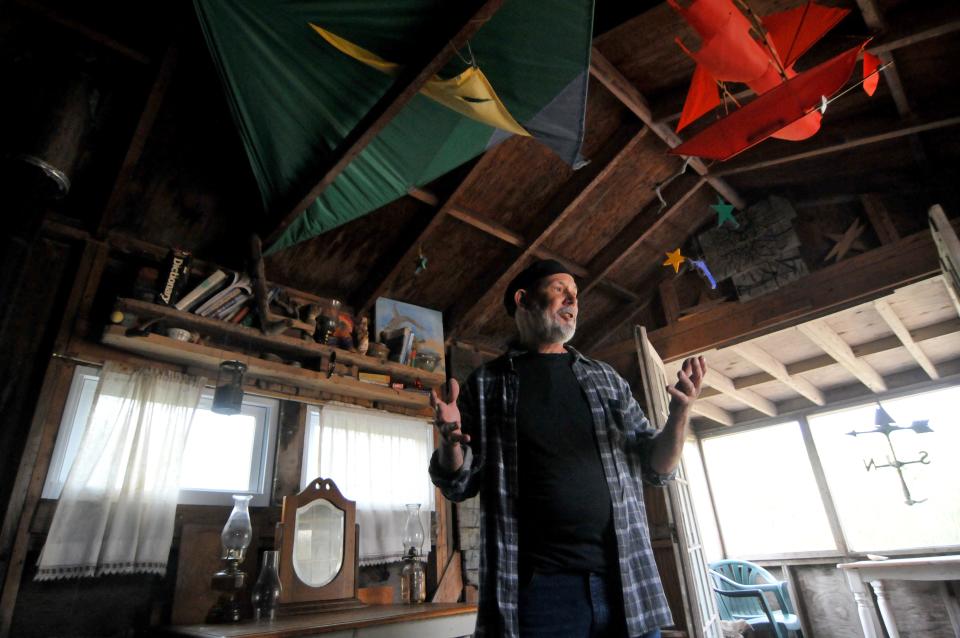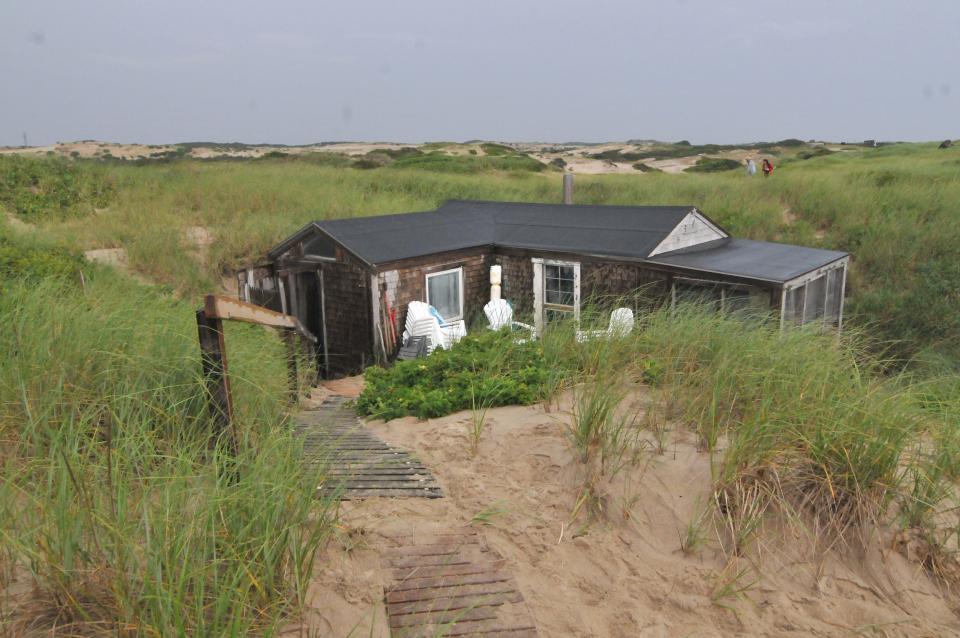Cape Cod National Seashore explores options for Salvatore Del Deo's dune shack use
PROVINCETOWN — After weeks of pushback, Cape Cod National Seashore officials contacted Salvatore Del Deo and his family on Friday to talk about the notice they gave to evict the 94-year-old artist from a dune shack on the Province lands.
Del Deo and his family have used the shack seasonally for decades. According to Salvatore’s son, Romolo, Seashore officials, “expressed a desire to remedy the situation.”
The eviction aroused the anger of a community of supporters and town officials and drew the attention of local and national media. It spurred two letters of support from Massachusetts legislators with calls to let Del Deo retain use of the shack. A petition on Change.org to halt the eviction has more than 32,000 signatures.

But the issue runs deeper than Del Deo’s use of a rustic shack that lacks running water and electricity. Romolo says it goes to the heart of the legislation that created the Seashore in 1961. Protecting the “way of life" was a goal of Provincetown and Truro residents and officials, who agreed to give town land to the National Park Service to establish the National Seashore.
Seashore officials counter that the shacks have been used without legal authority and that they are trying to balance the needs of individuals against their obligation to steward the national park and provide equitable access to it.
A statement released on June 28 by the Seashore read that "as part of the (National Park Service) commitment to the long-term stewardship of this land, the Seashore is in the process of carrying out this obligation of stewardship through a long-awaited leasing program for the dune shacks as outlined through a multi-year public planning process. Eight dune shacks are available for public lease and NPS is accepting bids through July 3."

Provincetown resident John Thomas claims the Seashore is contradicting mandates set by the U.S. Congress. In an email, he provided excerpts from the Cape Cod National Seashore Advisory Commission that recommended any general management plan for the Seashore include institutional cooperation between federal and local governments. The request for proposals to lease the dune shacks was made without comments from either Provincetown, Truro or the Advisory Commission, which has not met for six years but is in the process of being reestablished.
The town of Provincetown asked in a 1997 report that any management plan of the Seashore including the dune shacks recognize “the way of life enjoyed by Provincetown residents in the Province Lands.”
Del Deo’s supporters claim the Seashore is not honoring the “way of life” that locals and town officials thought the park’s establishment would enshrine. That "way of life" included the dune shacks and their dwellers. While the phrase was cited repeatedly in reports and meeting minutes and even the Congressional Record, it was never included in the enabling legislation.
The shack Del Deo was evicted from was built by Jeanne "Frenchie" Schnell before the Seashore was established. Schnell and her daughter were granted a lifetime lease. Romolo thinks the lease agreement should include a surviving daughter who lives in Tennessee and has given her permission for the Del Deos to continue to use the shack.
Seashore officials have said in a statement that the leasing program was the result of a multi-year public planning process and is part of their long-term stewardship of the land.
The Del Deos have never paid a lease on the property, but have paid property taxes on Schnell's shack, Romolo said.
Linzy French, visual information specialist at the Seashore, said in a July 3 email, “The National Park Service will continue to explore all legal options for allowing some use of the shack by its longtime users and look forward to our ongoing conversations with the Del Deos.”
There was nothing further she could share about ongoing discussions with the Del Deos.
Romolo wants Seashore officials to engage the help of mediators in any future discussions on the use and management of the dune shacks. He wants discussions to include all dune shack dwellers, particularly those affected by a Request for Proposals that would open up the use of the shacks to anyone with money to pay leases.
“We understand in any agreement there has to be compromise,” he said, “but they need to be prepared to meet us and that’s why I’m suggesting a mediator.”
Denise Coffey writes about business and tourism for the Times. Contact her at dcoffey@capecodonline.com. Follow her on Twitter: @DeniseCoffeyCCT.
Thanks to our subscribers, who help make this coverage possible. If you are not a subscriber, please consider supporting quality local journalism with a Cape Cod Times subscription. Here are our subscription plans.
This article originally appeared on Cape Cod Times: Seashore considers legal options for dune shack use

